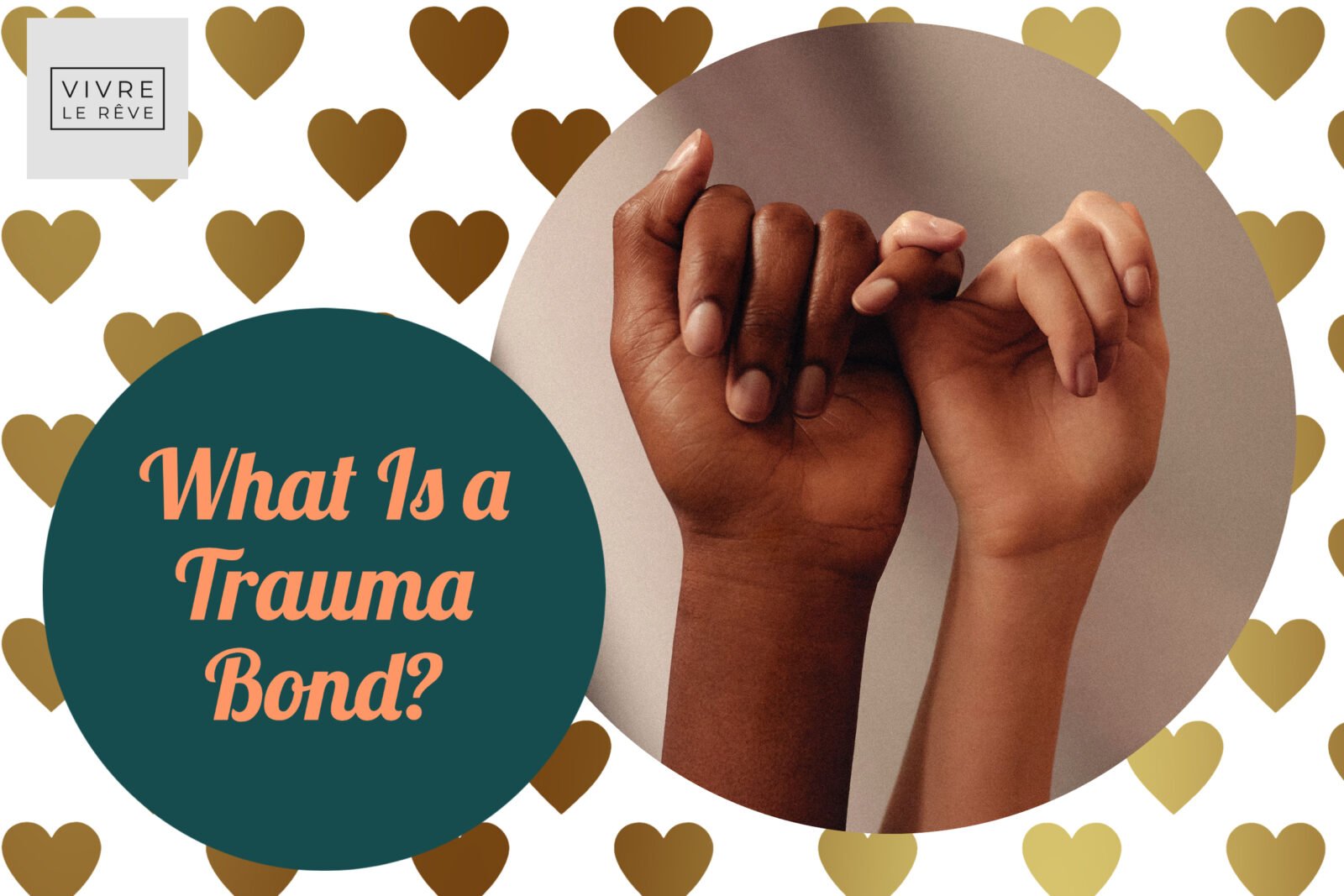What is a trauma bond? According to Dr. Patrick Carnes, a trauma bond is defined as “dysfunctional attachments that occur in the presence of danger, shame, or exploitation.”
This is the most common in narcissistic relationships. Remember, though, while it is common, these relationships do not have to be romantic.
How To Tell If You’re in a Trauma Bond
Your relationship is erratic
Do you feel yourself constantly walking on eggshells? Are you scared to interact with them because you don’t know how you’ll be treated? This may indicate a trauma bond.
One of the difficult aspects of a trauma bond is that their attitude towards you can change on a daily basis. This can make it seem like the abuse is triggered by a bad day or by something you did. The thing to pay attention to here is repeated cycles of abuse.
While everyone is certainly allowed to have bad days, it is dangerous to use them to excuse abusive behaviour. The unpredictability is a sign of a trauma bond because the good days can be rewarding and strengthen the affection you feel towards them.
“It will never happen again”
“I promise things will change” or, “This will never happen again.” Do these statements sound familiar? False promises often strengthen a trauma bond. In fact, they’re so powerful that they convince you to stay by creating a feeling of hope to cling to.
If you are in a trauma bond, you are inclined to believe these words because ultimately you are emotionally attached to the other person. Your belief in them comes from a place of hope and desperation, even if logic tells you that you will just be left hurting again.
You keep coming back
Do you often repeatedly betray yourself to get love and approval from someone? Do they regain trust in you either with excuses and apologies, even though they’ve broken their promises so many times? If so, this could be evidence of a trauma bond and this can leave you feeling worthless, helpless, stressed, anxious, and more.
The reason betrayals can impact you so much is because they are most often by people you trust and love. To want to trust them, give them chances and continue loving them is understandable. But when the trust becomes blind and destructive, the relationship is no longer healthy.
Periods of reward
Are you willing to sacrifice anything to make your relationship work? Do you squash your own will and desire just to keep them satisfied? Do you work so hard to find a reason to stay to the point where your sense of self may go out the window?
If you can relate to this, have you ever wondered why you may do so? Well, the cycles of abuse in trauma bonding also include reoccurring periods of reward. You hold onto the good times of the relationship in order to justify your relationship.
As a result, you lose yourself trying to please them in order to extend this pleasant period as much as you can. You may forgo your own values or avoid speaking your mind. You prioritise their needs over everything to a point of feeling burnt out.
You fight for the relationship (even though it’s abusive)
Is it difficult for you to acknowledge the toxicity in your relationship that others are trying to show you? Do you think others just don’t understand your relationship? When you’re in a trauma bond, it’s common to deny the facts that your situation is abusive and traumatic.
Think of it as a defence mechanism. You feel so tied down to your relationship, you’re unable to leave it or you keep going back to the same person.
It can be shameful to accept the fact that you are putting yourself in a destructive situation, so you may turn to denial. In other words, this acceptance may bring about feelings of inadequacy or weakness.
The sense of familiarity makes it impossible to leave
“Why don’t you just leave?” This is a complex question for someone in a trauma bond to answer and there are multiple reasons why.
A sign of a trauma bond is missing this person incessantly, almost like an addiction. Even after trying to break it off, you may miss having the other person in your life so much that it can impact you emotionally and physically.
In order to avoid this debilitating feeling, you may feel like you have no choice but to stay. It might also be hard for you to leave because it is hard for you to recognise your own situation.
The combination of emotional attachment, blind trust, manipulation, and denial can make you unaware of how destructive your situation really is. Making the prospect of leaving feel wrong or unnecessary.
If you know someone in a trauma bond, it is important to remain empathetic and understanding because the fact that they don’t see what you do is absolutely not their fault. If you find yourself in such a situation, know that you are not alone and that there are resources to help you heal.
Were you able to gain some insight on ways to recognise a trauma bond? Do you relate to any of these? Do share your thoughts in the comments below.



























Leave a Reply